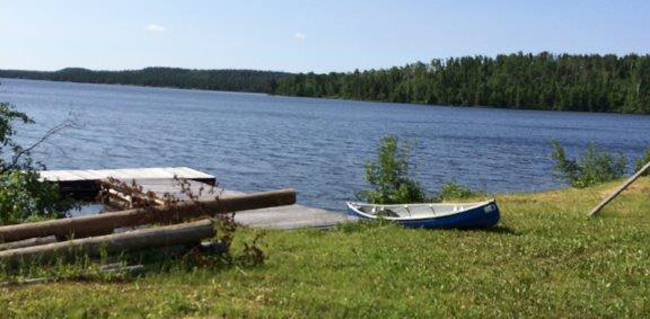Chief of Namaygoosisagagun says need for improved health care is critical

By Joey Krackle
Chief Helen Paavola says quicker access to health care is critical for Namaygoosisagagun First Nation.
“Our community’s population mostly consists of elders. It is a growing concern with the rising number of health issues,” says Paavola.
Chief Paavola stresses that her community urgently needs a nursing station with trained nurses to take care of the health of community members. “Namaygoosisagagun First Nation only receives funding for medical transportation.
There is no nursing station in the community. We have tried to keep a few people in the community that are trained in CPR and First Response for medical emergencies. The funding we get covers staff for the medical van.”
She has consistently urged Health Canada to provide improved services to her remote first nation located in northern Ontario. But bureaucracy stands in the way. “Because Namaygoosisagagun is still in the application stage of status, it is not recognized by INAC, so we are not eligible to receive any further funding.”
Chief Paavola stressed that her community desperately needs improved access to urgent care health facilities. “There is a helipad there for the air ambulance to land. The helicopter will only come in if the weather is favorable and it takes 45 plus minutes to get to the community and 45 plus minutes to get back to Thunder Bay, which is the nearest location with a hospital.”
In 2015, the Auditor General of Canada determined that Health Canada was not providing comparable health services to remote First Nations in Northern Ontario.
It was reported that training standards were not met, with only 1 of the 45 nurses in one sample having completed the mandatory courses.
Another issue was that nurses were not able perform specific tasks under particular circumstances because supporting mechanisms were not put in place.
Health Canada had recently defined essential health services that should be provided in nursing stations but didn’t assess whether each nursing station had the capacity to provide these services. There wasn’t communication to First Nations to inform individuals what essential services were provided at the station.
Chief Paavola warns about putting patients and staff at risk with nursing stations that are non-compliant with health and safety requirements.
The Anishinabek Nation supports the Chief and Council of the Namaygoosisagagun First Nation in getting a level of comparable health care to that of communities in non-remote Ontario.
Chief Paavola calls for immediate action from the new federal government. “It has consistently repeated that improving conditions for indigenous people is a priority, the time is now.”


